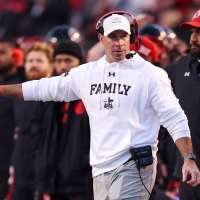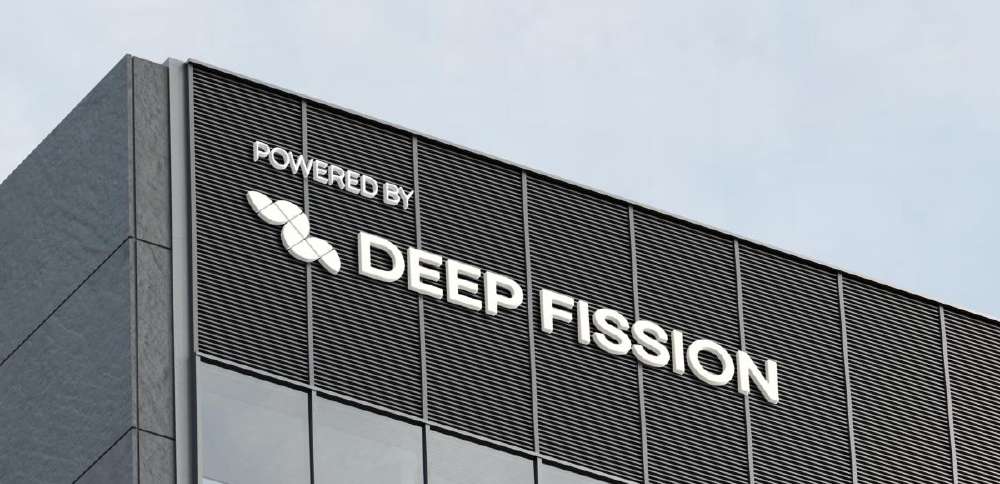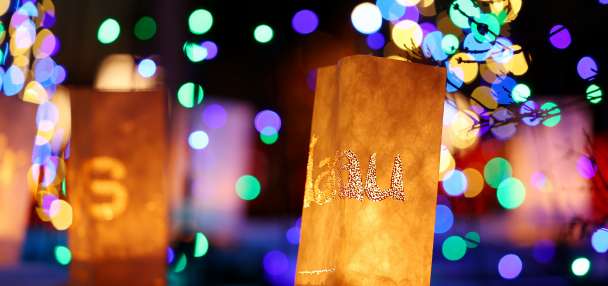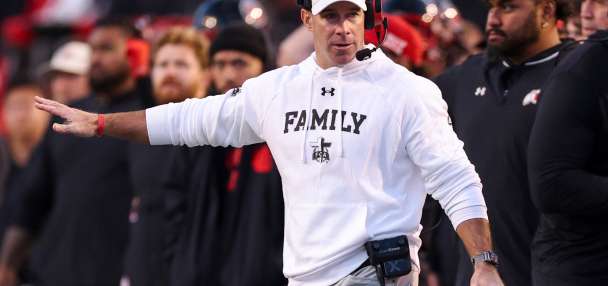Utah Breaking News, Sports and Weather
Latest News & Features

Mississippi State uses 20-2 run to pull away from Runnin' Utes in Salt Lake Showcase
Josh Furlong, KSL | Posted Dec. 13 - 11:51 p.m. | Save Story
The Bulldogs used a 20-2 run over a four-minute period to erase an otherwise strong Utah effort, and pulled away late to claim an 82-74 win at the Delta Center as part of the Salt Lake Showcase.

Tragedy transformed to giving: Holiday cheer meets generosity in Salt Lake toy drive
Jodi Reynosa, KSL | Posted Dec. 13 - 10:34 p.m. | Save Story
The festive spirit was alive and well in downtown Salt Lake City as the Utah Arts Alliance hosted its 10th Annual Doug Barney Memorial Toy Drive at the Urban Arts Gallery.

2 US soldiers and an interpreter killed in suspected Islamic State attack in Syria
Idrees Ali, Phil Stewart, Steve Holland and Maya Gebeily, Reuters | Updated Dec. 13 - 10:26 p.m. | Save Story
Two U.S. Army soldiers and a civilian interpreter were killed in Syria on Saturday by a suspected Islamic State attacker who targeted a convoy of American and Syrian forces before being shot dead, the military said.

Police search Brown University after gunman kills 2, wounds 9 on campus
Kimberlee Kruesi, Jennifer McDermott, Hannah Schoenbaum and Alanna Durkin Richer, Associated Press | Updated Dec. 13 - 10:22 p.m. | Save Story
Authorities are a searching for a shooter who killed at least two people and wounded nine others at Brown University on Saturday during final exams on the Ivy League campus.

No. 10 Cougars cruise to 6th straight win, beat UC Riverside at home
Sean Walker, KSL | Updated Dec. 13 - 10:07 p.m. | Save Story
No "Cardiac Cougs" or late game-winners Saturday night, BYU fans. Not that anyone was complaining.

How to protect yourself from the 5 most dangerous words used in email scams
Matt Gephardt and Sloan Schrage, KSL | Posted Dec. 13 - 9:44 p.m. | Save Story
Here are the five most dangerous words cybercriminals use in email scams and how you can protect yourself.

Judge says Comey evidence was wrongfully retained, creating hurdle for new charges
Jody Godoy, Reuters | Posted Dec. 13 - 8:28 p.m. | Save Story
Prosecutors must return evidence seized from a key figure in the dismissed case against former FBI Director James Comey, but the Department of Justice can seek a new warrant for the information, a federal judge ruled.

Idaho Falls woman searching for biological family discovers she was kidnapped by orphanage
Kaitlyn Hart, EastIdahoNews.com | Posted Dec. 13 - 7:44 p.m. | Save Story
McKenna Christensen could never have guessed what she would discover when she decided to finally start looking for her biological family.

Ballerina Farm kicks off the holidays with inaugural winter market
Ariel Harmer, Deseret News | Posted Dec. 13 - 7:03 p.m. | Save Story
Ballerina Farm has had a transformative year, but the Utah-based brand has more planned for the year ahead, according to co-founders Hannah and Daniel Neeleman.

Utah State holds off Illinois State for neutral-site win
Shawn Harrison, Herald Journal | Posted Dec. 13 - 6:59 p.m. | Save Story
There were some slams by both teams Saturday afternoon at the Delta Center, but in crunch time it was a pair of layups that provided the Aggies just what they needed in a tight finish against the Redbirds.

Fernando Mendoza wins the Heisman Trophy as college football's top player
Everett Merrill, Associated Press | Updated Dec. 13 - 6:53 p.m. | Save Story
Fernando Mendoza, the enthusiastic quarterback of No. 1 Indiana, won the Heisman Trophy on Saturday night, becoming the first Hoosier to win college football's most prestigious award since its inception in 1935.

Spreading Christmas cheer: How you can help fellow Utahns celebrate the holiday
Caitlin Keith, Deseret News | Posted Dec. 13 - 6:29 p.m. | Save Story
Last year, United Way Utah County's Sub for Santa program set a record for how many families it was able to help.

Winter allergies in Utah: What to expect this season
Robin King for KSL | Posted Dec. 13 - 5:43 p.m. | Save Story
From dry air to inversion, winter allergies in Utah can be intense and inconvenient. Discover causes, symptoms and relief tips to breathe easier this season.

BYU women close nonconference by tying program best 11-1 start. How did the other 3 finish?
Sean Walker, KSL | Posted Dec. 13 - 5:26 p.m. | Save Story
Olivia Hamlin went for 20 points for a second-straight game, and Kambree Barber added 13 points, seven rebounds, three assists, two blocks and two assists as BYU improved to 11-1.

Utah farmers may miss out on federal aid amid economic struggles
Debbie Worthen, KSL | Posted Dec. 13 - 5:02 p.m. | Save Story
President Donald Trump announced a $12 billion aid package aimed at helping the nation's struggling farmers. But Utah farmers may not see much of that relief — at a time when costs are high, and profits are low.

Dick Van Dyke turns 100. Here's what he's been up to lately
Dan Heching, CNN | Updated Dec. 13 - 4:16 p.m. | Save Story
The phrase "they don't make 'em like they used to" has never proven more accurate than with respect to legendary actor and comedian Dick Van Dyke, who turned 100 on Saturday.

Utah firm pursuing plan to import 1.31M cubic yards of low-level Canadian radioactive waste
Tim Vandenack, KSL | Posted Dec. 13 - 3:04 p.m. | Save Story
EnergySolutions is pursuing a proposal to import 1.31 million cubic yards of low-level Canadian radioactive waste for disposal in Tooele County.

Thailand vows to keep fighting Cambodia after Trump ceasefire claim
Panu Wongcha-um, Chantha Lach and Thomas Suen, Reuters | Updated Dec. 13 - 2:14 p.m. | Save Story
Thailand's leader vowed on Saturday to keep fighting on the disputed border with Cambodia as fighter jets struck targets hours after President Donald Trump said he had brokered a new ceasefire.

Utah names defensive coordinator Morgan Scalley as program's new head coach
Josh Furlong, KSL | Posted Dec. 13 - 2:11 p.m. | Save Story
After more than two decades, Utah football will have a new coach calling the shots.

PARTNER
Charlie Kirk's final book is released. Here's what it's about
Eva Terry, Deseret News | Posted Dec. 13 - 1:52 p.m. | Save Story
Slain political activist Charlie Kirk finished his yearlong project, "Stop, in the Name of God," in August.

Chileans in Utah will be among the voters casting ballots in Chile's presidential election
Tim Vandenack, KSL | Posted Dec. 13 - 1:32 p.m. | Save Story
Chileans living in Utah will be among the voters heading to the polls Sunday to cast ballots in the South American nation's presidential election.

Truck driver killed, 18 injured in Ephraim school bus crash
Cassidy Wixom, KSL | Posted Dec. 13 - 12:21 p.m. | Save Story
A truck driver was killed and 18 people were injured Friday night in a head-on collision with a school bus in Ephraim.

Utah students report improved mental health, less substance use
Bridger Beal-Cvetko, KSL | Posted Dec. 13 - 12:01 p.m. | Save Story
Utah students report fewer symptoms of depression and suicidal thoughts, and fewer say they have used alcohol or drugs compared with two years ago, a new statewide survey finds.
STAY IN THE KNOW
Get informative articles and interesting stories delivered to your inbox weekly.
Subscribe to the KSL.com Trending 5.
By subscribing, you acknowledge and agree to KSL.com's
Terms of Use
and Privacy Policy.

Outdoors »

Great Salt Lake's latest species discovery gets a name fit for the lake's native history
- Warm weather impacts elk-viewing sleigh rides in Cache Valley
- Park City brings Bonanza Flat bus back for the winter after successful seasonal launch
- Not just Utah: The West is off to its slowest snow collection start in at least 25 years
- Utah's snowpack off to 'slow start' amid 'whiplash' start to 2026 water year
World »

2 US soldiers and an interpreter killed in suspected Islamic State attack in Syria
- Idaho Falls woman searching for biological family discovers she was kidnapped by orphanage
- Israel says it killed senior Hamas commander Raed Saed in Gaza
- Thailand vows to keep fighting Cambodia after Trump ceasefire claim
- Chileans in Utah will be among the voters casting ballots in Chile's presidential election
Voces de Utah »

Chileans in Utah will be among the voters casting ballots in Chile's presidential election
- US official defends critical characterization of immigrant; juvenile court papers shed light on case
- Peruvian leaders host visiting Utah delegation, eager to promote trade with state
- Immigrant advocates protest at Salt Lake immigration facility amid talk of heightened enforcement
- Immigrant advocates warn of increased enforcement action targeting Salt Lake immigrants
Politics »

Judge says Comey evidence was wrongfully retained, creating hurdle for new charges
- Utah farmers may miss out on federal aid amid economic struggles
- Utah firm pursuing plan to import 1.31M cubic yards of low-level Canadian radioactive waste
- Thailand vows to keep fighting Cambodia after Trump ceasefire claim
- Chileans in Utah will be among the voters casting ballots in Chile's presidential election









